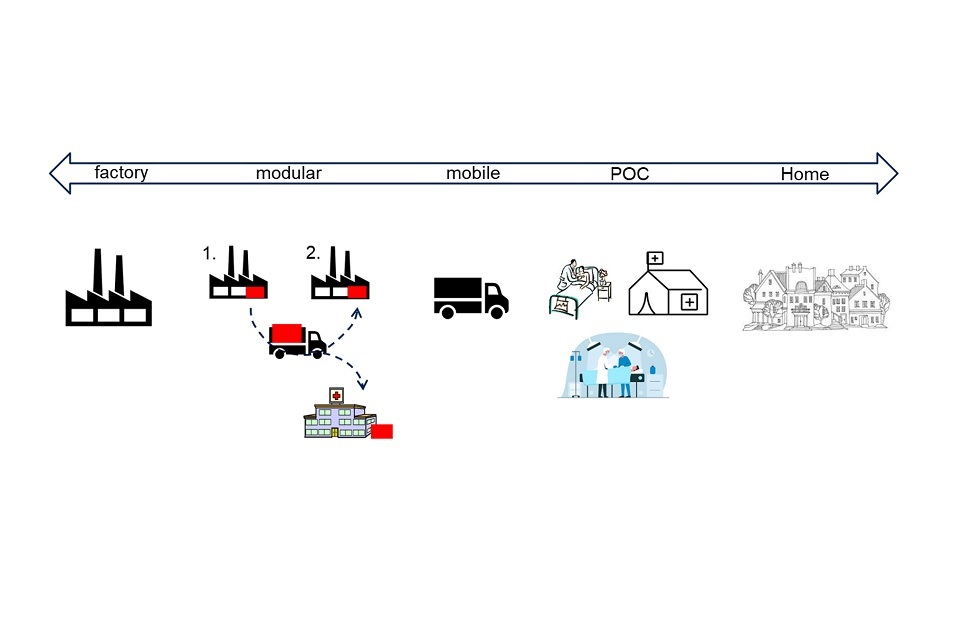Parents whose babies require neonatal care to receive paid leave under new law backed by government
- Government backs laws providing additional paid leave to parents whose babies require neonatal care after birth
- reforms will allow parents to spend more time providing crucial care for their baby instead of worrying about returning to work or having to take unpaid leave
- Business Minister Jane Hunt: “I hope we can take one concern off the minds of new parents and give them the additional paid time off they need to care for their poorly baby.”
Thousands of parents whose babies require specialist care after birth will be able to take additional paid time off work, under new legislation backed by the government today (Friday 15 July).
A baby who is born prematurely or sick will receive neonatal care in hospital or another agreed care setting – often for a prolonged period of time. This can put parents in a difficult position of having to use their existing leave entitlements to be by their baby’s side, or worse, having to return to work while their baby is still receiving hospital care.
Today’s Neonatal Care (Leave and Pay) Bill, introduced by Stuart C McDonald MP and backed by government, will allow parents to take up to 12 weeks of paid leave, in addition to other leave entitlements such as maternity and paternity leave, so that they can spend more time with their baby at what is a hugely stressful time.
Once in law, neonatal care leave will be available to employees from their first day in a new job and will apply to parents of babies who are admitted into hospital up to the age of 28 days, and who have a continuous stay in hospital of 7 full days or more.
As many parents across the UK are facing rising cost of living, today’s reforms will help ease future pressures on families whose children require neonatal care by ensuring they aren’t forced with the choice of taking unpaid leave or continue working. As well as supporting families, it will also help employers who want to better support their staff.
Business Minister Jane Hunt said:
Having a new-born in neonatal care is an incredibly worrying time for parents. No family should also have to agonise about their return to work, or whether they have enough leave in place.
By putting our full weight behind this Bill, I hope we can take one concern off the minds of new parents and give them the additional paid time off they need to care for their poorly baby.
The reforms will be a huge boost for parents across the UK, with up to 12 weeks of paid leave for each parent. Mothers of children who have an extended stay in hospital at the start of their lives often find that 39 weeks of paid maternity leave does not give them enough time with their loved one before they need to go back to work. Similarly, the change in law will ensure fathers and partners have the flexibility to share caring responsibilities by increasing the amount of paid leave they can access beyond the usual 2 weeks of paternity leave. It will also fit alongside Shared Parental Leave, and the flexibility that this provides, which will mean both parents feel able to prioritise their child, and family, in that precious time after birth.
Stuart C McDonald, MP for Cumbernauld, Kilsyth and Kirkintilloch East said:
No parent should have to choose between being with their premature or sick baby in neonatal care and having to return to work to earn a living; or enjoying the full benefits of parental leave and going back to work.
With the cost of living soaring, it is more important than ever that we secure an urgent change in the law so that parents of babies in neonatal care get the paid leave and support they need at an incredibly challenging time.
I’m delighted to bring forward this Bill with the backing of Bliss and families across Scotland and the UK.
Bliss Chief Executive, Caroline Lee-Davey, said:
We are thrilled that the Neonatal Care (Leave and Pay) Bill has passed Second Reading in Parliament and has support from the government. This is a huge milestone after years of campaigning and is a significant step towards tens of thousands of parents having paid leave while their baby is critically ill in hospital every year.
We know how much this entitlement will mean to families, and the difference it will make to babies. Currently, thousands of parents every year have no choice but to return to work while their baby is in hospital or spend months of their maternity leave next to an incubator. After the progress made today, we are one step closer to giving many parents the much-needed time to be where they need to be – by their baby’s side in hospital.
We know there is now more to do to continue the Bill’s passage through Parliament, and we look forward to continuing to work with Stuart McDonald MP and the government, and MPs across all parties to ensure that this Bill becomes law as quickly as possible.
The government already has package of measures in place to support the most vulnerable families and those on lower incomes. Earlier this year earlier the government increased the National Living Wage to £9.50 per hour – equivalent to an extra £1,000 a year for a full-time worker – with a full campaign underway encouraging workers to check their pay.
Neonatal care leave will be paid if the parents meet certain conditions regarding continuity of service and minimum earnings.

